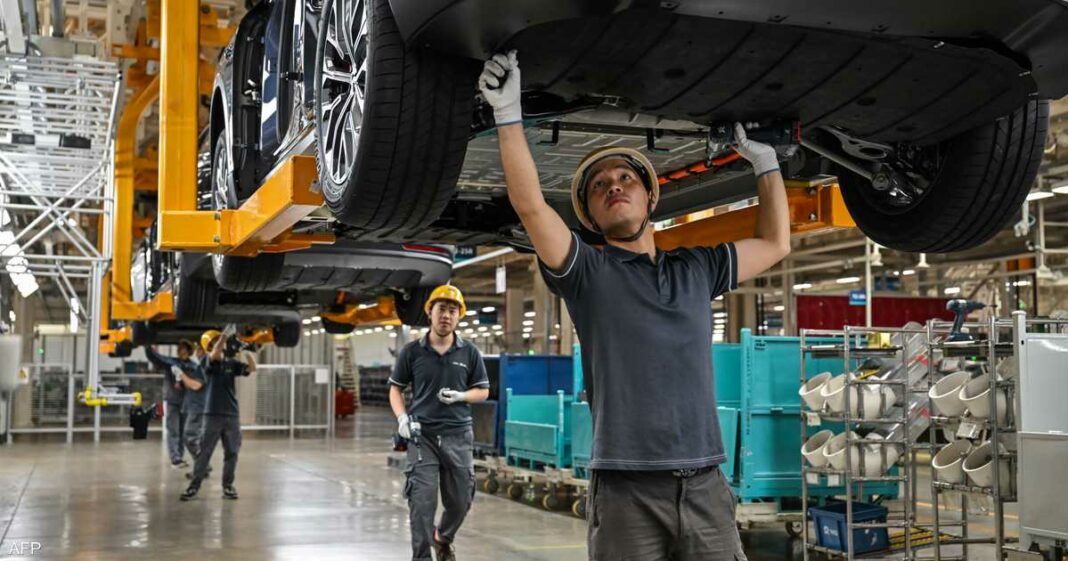
But is this decision a reform step or a new economic dilemma that will lead to counterproductive results? Between those who consider it a necessary reform step to ensure continued growth, and those who see it as an additional burden on citizens, the most important question remains: What is the impact of such a decision on the Chinese economy and society?
China’s top legislature has approved a formal plan to begin lifting Retirement age The legal framework in the country will gradually come into effect starting from January 1, 2025 and ending in 2040. The ultimate goal of the plan is to raise the retirement age by three years for men to 63, five years for women working in factories from 50 to 55, and three years for women working in offices from 55 to 58, according to a report published by CNBC and reviewed by Sky News Arabia.
The reforms are long overdue, and the country needs to be able to tap into an older pool of workers when the labor force shrinks more sharply in the next decade, said Erica Tai, head of macro research at Maybank Investment Banking Group. She said the policy shift would prevent a sharp decline in China’s potential growth, if only marginally.
China faces a shrinking workforce and a pension deficit that could wreak havoc on the economy, the report said, noting that economists have long called for reform of the country’s retirement age laws, which are currently among the lowest in the world and were set in an era of low life expectancy. In 2023, average life expectancy is set to rise to 78.6 years, up from about 44 years in 1960.
Aging demographics
Beijing’s low birth rates and relatively young retirement ages mean the working-age population will continue to shrink, the report said.
“The decision to raise the retirement age is a wise move that balances the demographic slump with managing people’s expectations at a gradual pace,” said Bruce Pang, chief economist and head of research at Gale, an investment management firm.
“The plan may be unpopular, but it provides much-needed certainty and is good for China’s long-term economic future,” said Chen Xu, chief economist at the Economist Intelligence Unit. “China has avoided narrowing the five-year gap between men and women, and is proceeding cautiously to avoid further social backlash.”
Pressure on pensions
“Raising the retirement age will help ease the cash pressure on local government pension funds,” said Shena Yu, an economist at Oxford Economics. “Although inflows may not change much, outflows will be delayed, buying time for local governments to fix their budget deficits.”
In a 2019 report, the state-run Chinese Academy of Social Sciences estimated that the pension system would run out of money by 2035.
However, Erica Tai, of Maybank Group, said, “More needs to be done to improve retirement adequacy, noting that China needs a stronger pension plan and diversified investment avenues to ensure sustainable retirement savings.”
This retirement plan will be implemented gradually based on a somewhat complex calculation system, as China’s Ministry of Human Resources and Social Security has added some tools for citizens to check the indicated retirement age on its website and mobile app.
Beijing said exemptions could be granted to certain people, while also urging local and regional governments to respond effectively to the elderly, and encourage and support people to join the workforce or start businesses, according to the US network report.
Ensuring sustainable development
In an exclusive interview with Sky News Arabia Economy, economic expert Dr. Mustafa Badra said: “China’s decision to raise the retirement age reflects a strategic direction aimed at enhancing sustainable economic development over the next fifteen years.”
He explained that the quick adoption of this decision, which is expected to be implemented by the beginning of next year, indicates that China is looking to achieve two basic things. The first is to ensure the sustainability of economic development, an issue that concerns the entire world in light of the current economic slowdown. The second is to address the significant slowdown that the Chinese economy is suffering from by focusing on the human element as one of the main pillars of economic growth.
Extending the retirement age is a strategic move to boost economic productivity in China. By keeping experienced workers in the labor market longer, China seeks to boost economic development and achieve higher growth rates, amid expectations of a global recession, according to Dr. Badra, who believes that this move will enable China to improve its economic output and avoid the negative effects of the global economic slowdown.
Maintaining financial solvency
Badra added that there are financial dimensions to this decision, as China seeks, by raising the retirement age, to postpone the disbursement of retirement pensions, which will provide the state with greater financial flexibility and ease pressure on the general budget. This postponement in the disbursement of retirement benefits allows China to retain more financial resources to support its economy in the coming years. Given that China is considered the “world’s factory,” maintaining financial solvency and the ability to face economic challenges are essential to continuing this vital economic role.
He pointed out that China suffers from a shortage of skilled workers in some of its provinces, especially in the manufacturing sectors. Therefore, raising the retirement age for workers in these sectors helps meet the growing domestic demand for qualified workers in these industries, which is essential to ensure the continuity of production and meet the needs of the local economy.
Economic expert Dr. Badra stressed that China may benefit from global changes over the next fifteen years, as the global economy is going through a period of significant slowdown. This slowdown requires more efforts in the areas of human and industrial development to confront the expected recession. By providing skilled and productive labor, China can boost growth rates that will positively reflect on its public budgets and the global economy as a whole.
A positive step but late
For his part, the CEO of the “Krom Center for Strategic Studies”, Tariq Al-Rifai, considered in a special interview with the “Sky News Arabia Economy” website that the decision to raise the retirement age in China A new economic dilemma, he explained that the country is going through a phase similar to that witnessed by developed countries, where population growth is slowing down as a result of changes in reproductive policies, so much so that the government has changed its policy towards the number of children due to expectations of slowing economic growth and the expected shortage of the workforce in the coming years.
He explained that the decision to raise the retirement age came as a result of the increasing number of retirees and the elderly, as is the case in Europe, Korea and Japan. Although this step is positive, it came late. The government was supposed to take this decision at an early stage, but now it is forced to start implementing this solution.
The CEO of the Krum Center for Strategic Studies added that the Chinese government realizes that it has become a country facing challenges related to the increasing number of elderly people compared to young people, which necessitates the need to start planning for a future in which the number of elderly people does not exceed the number of young people.
Al-Rifai stressed that “China is facing a demographic crisis greater than any other country in the world, and the government will not feel its effects in the short term, but it will begin to appear in the coming years.”





